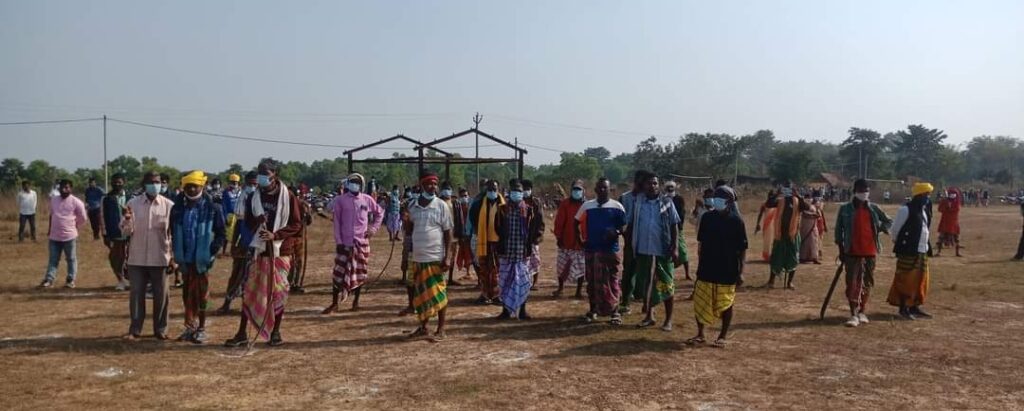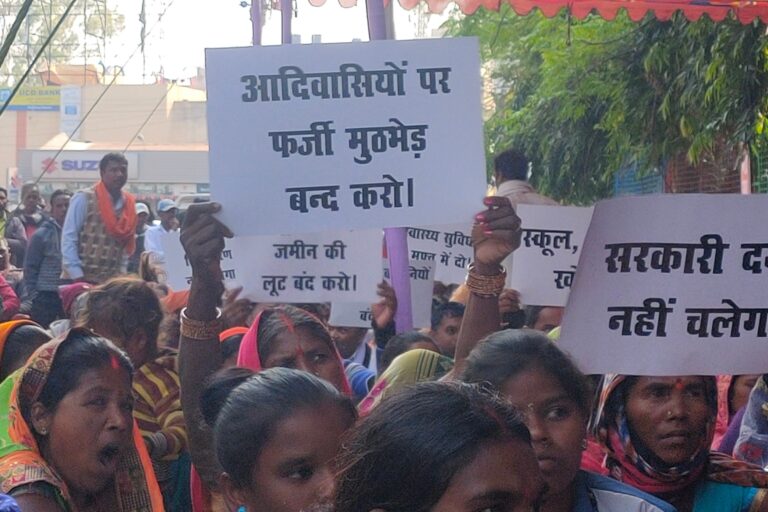
In the thick forests of India’s Red Corridor, a distressing situation is taking place. Indigenous tribal communities are trapped in the midst of a violent conflict between the government and Naxalite insurgents. Over the years these marginalized communities have been unjustly accused of supporting the Maoist movement. Consequently, they are unintentionally being made targets and suffering the most from government-led efforts to combat the Naxalites. The lingering question pertains to whether the Indian government is adequately safeguarding the human rights of these vulnerable populations.
The term “Red Corridor” refers to the swathes of central and eastern India affected by the Naxalite insurgency, primarily led by the Communist Party of India (Maoist). These areas are characterized by poverty, underdevelopment, and a lack of basic amenities, which have made them ripe breeding grounds for Naxalite recruitment. The tribals, who have inhabited these regions for centuries, constitute a significant portion of the local population. Bastar, located in the state of Chhattisgarh, is a prime example of the Red Corridor’s grim realities. Despite its natural wealth in resources like minerals and forests, the region remains impoverished, with a significant tribal population. The government’s efforts to tackle Naxalite insurgency here have been marred by allegations of human rights abuses.
One of the most infamous incidents in recent years occurred in 2021. In Bijapur district, Chhattisgarh, a tribal woman was reportedly raped and murdered under governmental supervision. On the night of May 30, the victim was forcibly taken from her family’s home by a group of District Reserve Guard (Modern Salwa Judum) members, who are local tribals trained to assist authorities in tribal areas. The family expected her to be in police custody the next morning but instead found her dead, accused of being a Maoist with a 2 lakh rupees reward. Her body bore signs of sexual assault and multiple blade cuts.
Despite filing a complaint at Nelasnar police station, no FIR was registered even after seven days. The Inspector General of Police, Bastar Range, denied the family’s allegations, claiming the operation was launched due to the presence of Maoists. In Jharkhand, incidents of extremism have not abated. The latest incident has occurred in Simdega. On the night of 18th January 2023, militants associated with the People’s Liberation Front of India (PLFI) launched a major attack. The extremists set fire to several vehicles, including JCBs and Poklan, involved in construction work near the Odaga railway station. They left a notice at the scene warning that no construction work should be carried out without consultation with the organization. The police are currently investigating the incident.
The attack near the Odaga railway station took place in the Jaldega police station area on Wednesday night. Armed PLFI militants set fire to several vehicles involved in construction work, including JCBs and Poklan. They also targeted a water tanker. The police were alerted to the incident, and they have initiated an investigation with the support of reinforcements. National and local media have generally been describing PLFI as a Maoist organization and Dinesh Gope (PLFI Supremo) as a Maoist. However, when we examine the underlying ideas of PLFI and how it operates, the organisation appears to be nothing more than a gang of criminals.
One of the significant criticisms of the PLFI is its lack of a clear ideological foundation. Unlike the CPI (Maoist), which claims to be fighting for social justice or political change, the PLFI operates solely for personal gain and criminal activities. This absence of a coherent ideology raises concerns about the motivations and long-term goals of the organization. Such incidents are not new in Bastar, with a history of violence against tribals. Despite changes in government, military atrocities persist, leaving the tribal population feeling besieged and helpless.
Jharkhand, another state within the Red Corridor, has also witnessed a disturbing pattern of tribals being caught up in anti-Naxalite operations. In the Khunti district, the government has initiated several security campaigns to root out Naxalites. However, these operations often result in the displacement of tribal communities, who are forced to leave their ancestral lands. One such case is that,On the evening of June 9, 2017, CRPF personnel killed Motilal Baske, a resident of Dholkatta village, in a reported clash. Following this incident, CRPF claimed that Motilal Baske was a “dreaded Maoist,” while villagers asserted that he ran a shop on the Parasnath hill and worked as a daily wage laborer. Residents of Motilal Baske’s village claim that he was the first beneficiary of the Indira Awas Yojana in the entire village, and his name is even listed in the current voter list. They say “being a member of the CPI (Maoist) and being registered in the electoral list for government schemes is nearly impossible.”

The situation faced by the innocent tribal populations in the Red Corridor is truly heart-wrenching. They are ensnared in a precarious predicament, caught between the state’s efforts to combat Naxalism and the Naxalite insurgents themselves. As the government escalates its campaigns against the Naxalites, the tribals frequently find themselves in harm’s way. A common consequence of these anti-Naxalite operations is the forced displacement of tribal communities. They are forcibly uprooted from their homes, farmlands, and forests, often without receiving fair compensation or proper rehabilitation support. This not only disrupts their traditional way of life but also pushes them deeper into poverty. Reports of human rights abuses committed by security forces in these areas are disturbingly common. Innocent tribals are subjected to arbitrary detention, torture, sexual violence, and extrajudicial killings.
The tribal communities in the Red Corridor primarily rely on farming and forest resources for their livelihoods. When they are displaced or when their lands are taken over for security purposes, their means of sustenance are severely affected. Many are left without food, shelter, or employment opportunities.Living under the constant threat of violence and displacement has severe psychological consequences for the tribals. Children are often traumatized by the violence they witness, and adults grapple with anxiety and fear. The long-term effects of this trauma can be debilitating.
The innocent tribals living in India’s Red Corridor are paying a heavy price for a conflict they did not choose. They are not supporters or sympathizers of the Naxalite insurgency but rather victims caught in the crossfire. The government’s efforts to combat Naxalism must not come at the expense of the human rights of these vulnerable populations. To address this crisis, the government should focus on a multifaceted approach that combines security measures with development initiatives, protection of tribal rights, and a commitment to justice and accountability. Only by addressing the root causes of the conflict and ensuring the safety and well-being of the tribals can a lasting solution to the Naxalite insurgency be achieved.
It is high time that the Indian government takes decisive steps to protect the human rights of innocent tribals in the Red Corridor and demonstrate its commitment to justice and peace in these marginalized regions. The tribals deserve better than being scapegoats in a conflict not of their making, and the government must rise to the occasion to secure their future.It demands accountability for human rights abuses, protection of tribal rights, and a commitment to addressing the socio-economic disparities that fuel the insurgency.
It is our collective responsibility to stand in solidarity with the innocent tribals in the Red Corridor and advocate for their rights. Their suffering is a stark reminder that the pursuit of security and development must not come at the expense of human rights and dignity. Only through concerted efforts can we hope to bring an end to their ordeal and pave the way for a more just and peaceful future in these long-affected regions.
***